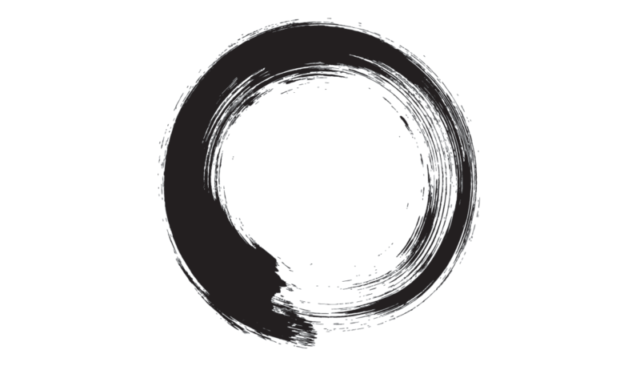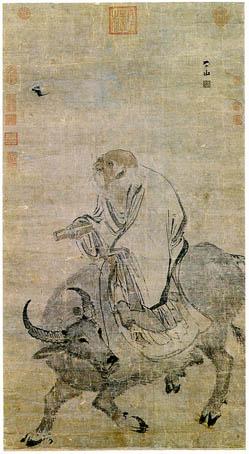Empty of desire, perceive mystery.
Filled with desire, perceive manifestations.
These have the same source, but different names.
Call them both deep
Deep and again deep:
The gateway to all mystery.
-Tao Te Ching, chapter 1
According to legend, Lao Tzu, the author of the Tao Te Ching and the founder of Taoism, was miraculously born to a couple after 100 years in his mother’s womb, making his mother 126 years old when he was born.
He lived out his life during the Zhou dynasty in China in about the 6th century BC and worked as a keeper of the royal archives, essentially a humble librarian. He developed his understanding of the Tao and in old age decided to leave this world forever.
Lao Tzu traveled to the Western border of China, near Tibet, riding on a water buffalo, and when he came to the Western gate of the empire the gatekeeper stopped him. The gatekeeper told him that he would not be permitted to leave unless he left everything he had. Lao Tzu replied that all he has was his knowledge, composed the Tao Te Ching in 5000 characters and left this world.
Tao means “the way”, both literally as a road, and as a spiritual path.
Te means “integrity”, also virtue, power, action, or grace.
Ching means “warp of a fabric” and indicates a classic, a scripture.
Therefore Tao Te Ching can be elaborated on to mean The Scripture of Integrity (personal power) and the Universal Cosmic Way.

“The Tao is the esoteric Gnostic work. The Tao is the secret path.
The Tao is something very intimate. The Tao is the Being.
When one lives in the center of the circle, one does not take part in that mechanical game of the Law of the Pendulum. One is not subjected to the alternatives of anguish and happiness, triumph and failure, happiness and pain, optimism and pessimism, etc.”
-Samael Aun Weor
The Tao is beyond the duality, the yes and no, black and white, up and down of the mind and of our accustomed existence in the physical world.
“When one is in the Tao, one knows to see all things pass around oneself, around one’s own Consciousness, all the events of life with their two faces, and one knows that they are ephemeral.
If a person is located in the center, in the Tao, then he conciliates the opposites within himself, in his own Being, in his own Consciousness, and says, ‘I know that after every happiness comes a sadness, but nothing of this affects me, because everything is ephemeral: people pass away, things pass away, ideas pass away, everything passes.
So, I can live that event as it has to be lived.'”
-Samael Aun Weor
“Many people are pleased and satisfied with the various limited religious doctrines existing in the world today. They all hope to live in the Kingdom of Heaven someday and sit sublimely at the side of their personal deity.
But by entertaining such hopes and beliefs they only foster concepts of self and others, longevity and brevity, life and death, and so on without end. With such conceptual entanglements they cannot even listen to the Truth, much less study, practice and embrace it or explain it to others.”
-Lao Tzu, Hua Hu Ching, Chapter 16

